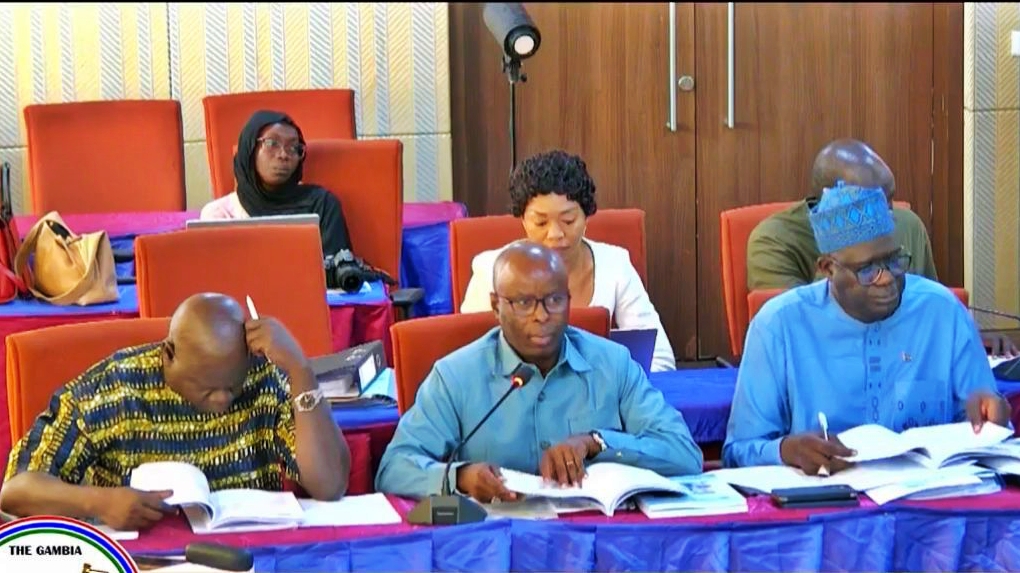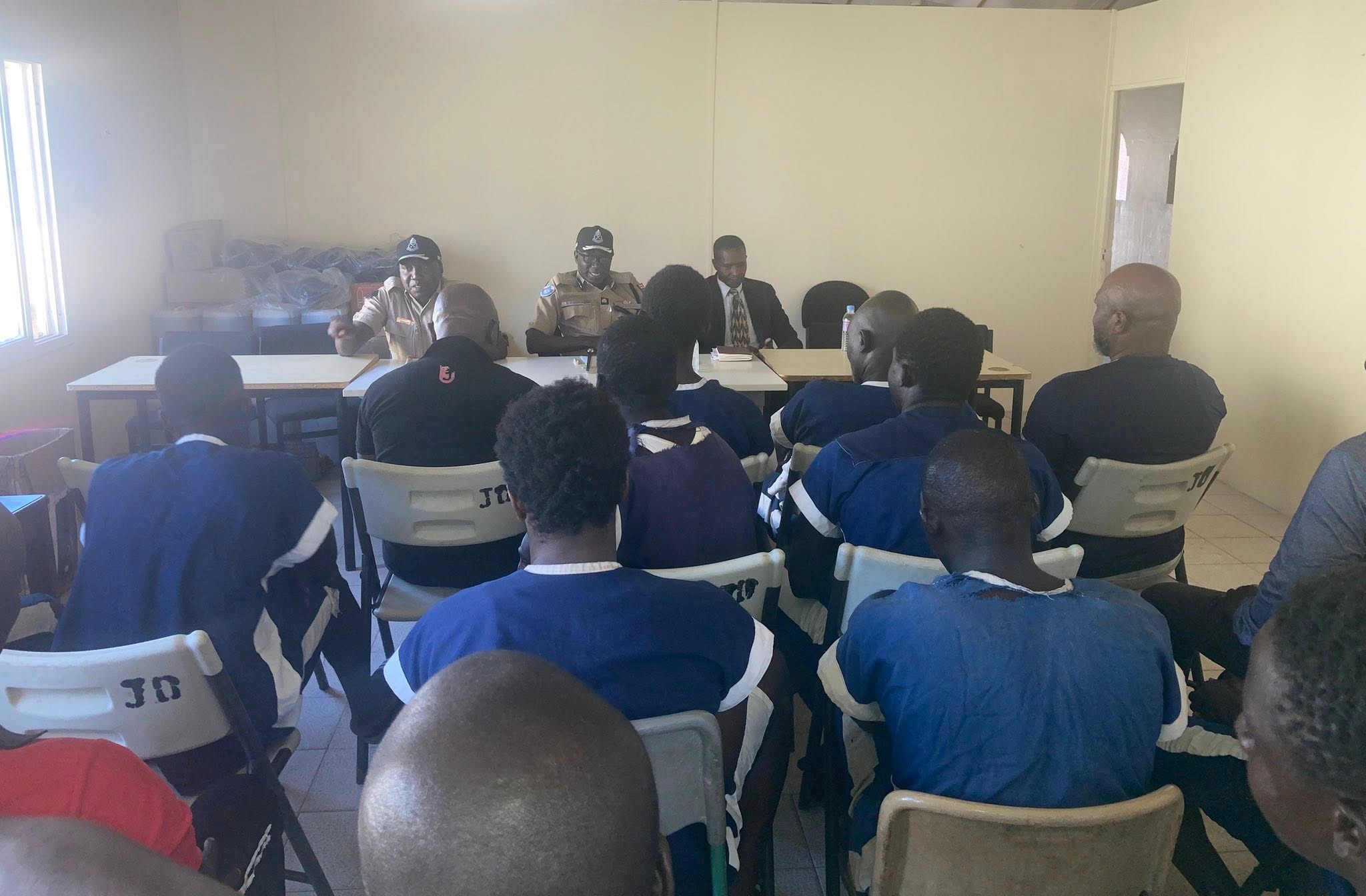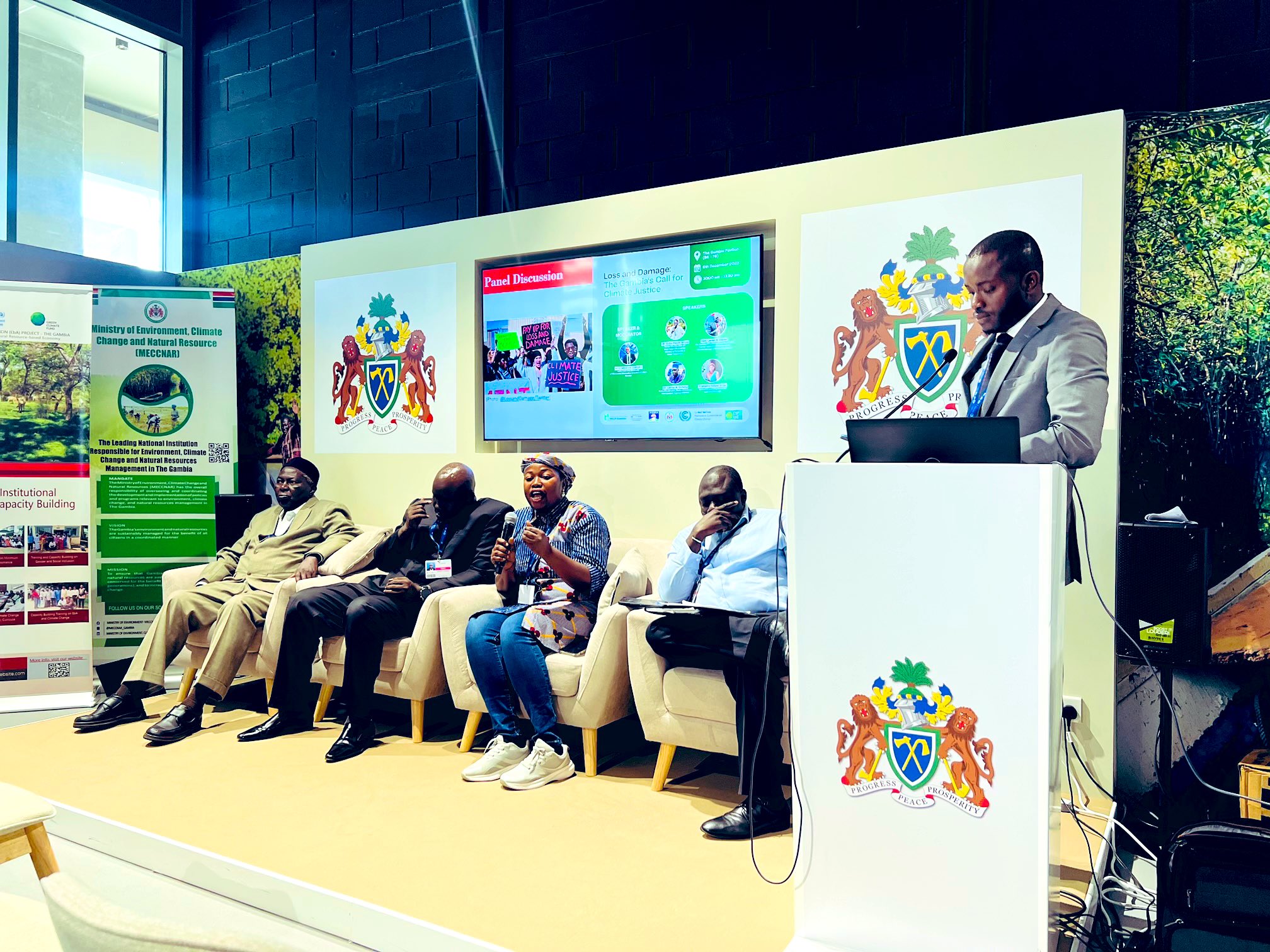During COP28, a discussion on fostering youth-led entrepreneurship and innovation for climate resilient communities was held. Key opportunities for youth participation included academic partnerships, impact-driven research, and policy frameworks.
The UAE and UNESCO hosted an education ministerial meeting to emphasize the importance of youth empowerment. The discussion highlighted the need for formal and non-formal education to advance young people’s educational prospects and access finance and mentorship.
Towards a sustainability curriculum
Dr. Nfamara Dampha, a researcher in a team focusing on natural capital and ecosystem services at the Institute on the Environment at the University of Minnesota in the United States and the founder of the Household Disaster Resilience Project in The Gambia, shared insights on the need for African universities to move towards introducing sustainability and entrepreneurship curricula to prepare youths for climate action.
“The critical question for the African continent is: how do we incorporate sustainability and entrepreneurship into our education system? We have to review and redevelop our curricula, and this is important because we are dealing with a very fluid and dynamic issue, which is climate change,” he said.
“The nature of climate change requires that the curricula have to be periodically and regularly updated; therefore, African educational institutions must decolonize their education systems.
“The Gambia and many other countries across Africa inherited a system that is no longer fit for purpose. We have graduates from our current education system that are still not equipped enough with the critical skills to be able to deliver innovation and technology and to build capacity for the communities that they live in.”
He also highlighted that education policy, governance, and structural reforms had crucial roles to play in mainstreaming education in all sectors and integrating climate change and sustainability into the educational curriculum across all disciplines and academic areas. In this context, the training of instructors at educational institutions was of the utmost importance, as this would help to define what the curricula should constitute.
Finance, capacity-building, and technology were all key factors in driving the implementation of sustainability projects and providing entrepreneurial education that could help empower youths and bring transformation to African communities.
“Natural sciences and social sciences are equally important when we look at climate change. This is why we must ensure that the implementation process is consistent across the board.
“In addition, it is important to include context when looking at who is providing the education and what we are teaching our students.
“[The] training of trainers to understand what it means when discussing climate change, even at an elementary level, is essential. Finally, I want to mention the importance of research, technology, and innovation centers across The Gambia and Africa. There are models, but they need a means of implementation. Universities need partners to support and scale up these centers,” Dampha stated.
Public and private partnerships
Durre’ Mahmood, a climate policy speciialist at Oxford Policy Management, highlighted the importance of public-private partnerships in fostering youth-led entrepreneurship, addressing regulatory and financing gaps, and achieving the Sustainable Development Goals (SDGs), including inclusive communities, functional industries, innovation, infrastructure, and economic growth.
“The topic we are discussing today covers all the SDGs. Aspiring and budding ecopreneurs or social entrepreneurs are the solution providers to some of the societal and environmental challenges or climate emergencies in the Global South,” she said.
“Pakistan is the fourth-largest freelancing youth market in the world, not just in Asia. We were able to achieve this because our government invested a lot in the research and development fund, which was set up as an academic and government partnership so that national incubation centers could be rolled out in our key provinces. These centers were housed in the big universities and the private sector.
“Universities had access, in terms of business development support services, not only to fresh graduates but also to budding enterprises and entrepreneurs within communities who could actually travel to these universities. They had co-working spaces for them and provided them with internet, which is very important,” she stated.
National Incubation Centers
Universities offer entrepreneurial training programs for young entrepreneurs, including ‘Women in Renewable Energy’. Partnerships with assemblies, unions, and associations provide technical support, accessibility, and e-commerce platforms for entrepreneurs to register and scale up businesses.
“Through these national incubation centers, we saw that it fostered a lot of multiple partnerships—not just academia and government but also the private sector. Big telecommunications companies are now part of the incubators, and we have hackathons in which venture capitalists based in the US, United Kingdom, and UAE are investing in start-ups.
“The nexus of academia and policymakers could provide support to improve the ease of business, market access, and export facilitation. We could actually streamline the process of registration, as start-ups do not have seed funding to even register their businesses. Women chambers also help with registration, licensing, and compliance because many small ventures lack financial literacy.
“Academia has the technical capacity to assist policymakers from the Global South to develop customized youth entrepreneurship and green start-up policies and strategies. Chances are that if academia, the private sector, and universities are not engaged in those policies, they would be blind to inclusivity and to the youth,” said Mahmood.
Mentorship
The Mbolo Association in The Gambia is empowering women with technical skills to build and assemble solar energy systems, contributing up to 15% of the country’s solar energy generation. This model has been adopted in West Africa.
Martin Masiya, executive committee member of the Commonwealth Sustainable Energy Transition Agenda’s Youth Action Group and founder of Sollys Energy in Malawi, stressed the importance of mentors in supporting start-ups and the execution of climate-conscious business models.
“At Sollys Energy, we identify households and businesses that are not connected to the electricity grid in Malawi and we electrify them using solar home systems. Over 20 million people in my country live without access to electricity, and this affects their productivity.
“We set out to solve this challenge by distributing solar lanterns and solar home systems using a network of local sales agents, enabling customers to pay flexibly over a period of time using Pay-As-You-Go technology. In 2020, we electrified 500 households and employed 20 youths.
‘’Mentorship allows youth to leverage the experience of others and learn from their pitfalls. Having mentorship programs is really beneficial because it allows for the continuous exchange of knowledge, which allows sustainable solutions to come out of Africa,” said Masiya.










